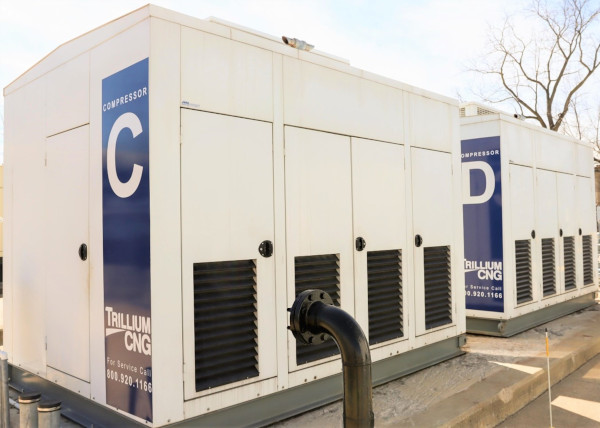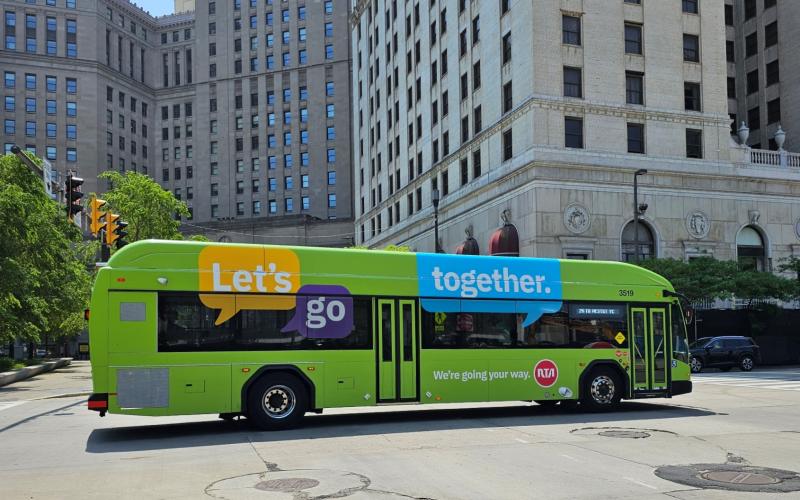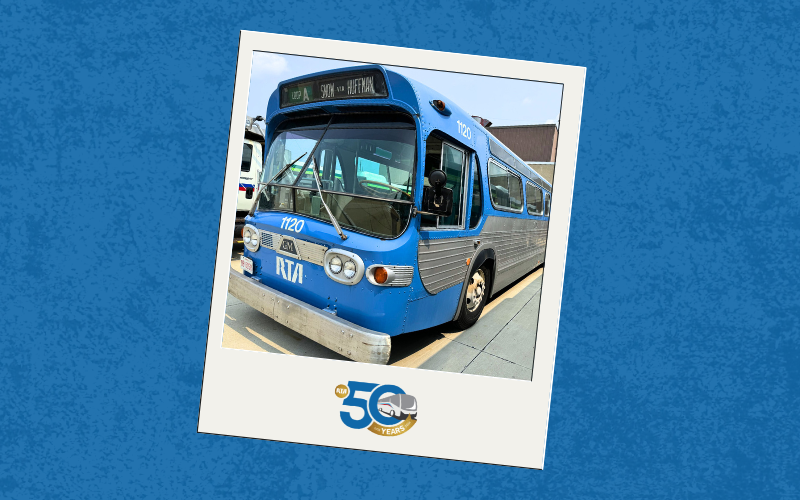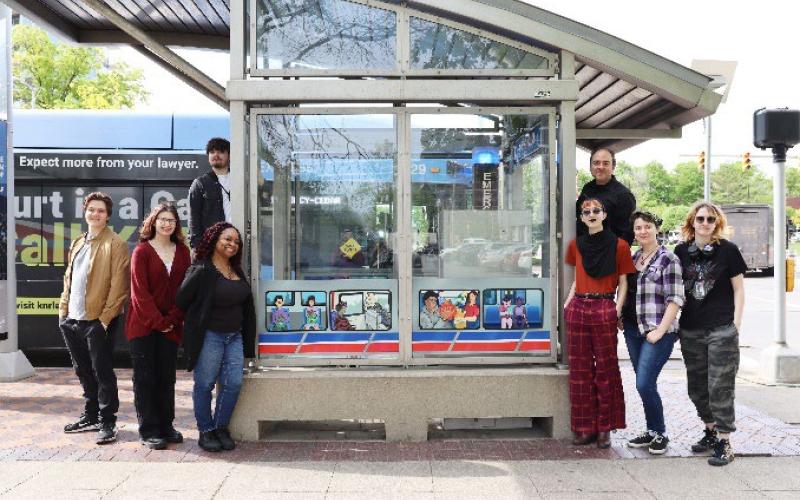Jul 7, 2023
The Greater Cleveland Regional Transit Authority (GCRTA) has received a major boost in funding to purchase six new Compressed Natural Gas (CNG) powered buses. GCRTA received a Low-No Grant from the U.S. Department of Transportation’s (DOT), Federal Transit Administration (FTA) of $3.2 Million in total funding (United States Department of Transportation, 2023). This grant helps to put cleaner, more environmentally friendly buses in Greater Cleveland (United States Department of Transportation, 2023). These six CNG buses will be added to the 220 that GCRTA currently has. In addition, GCRTA has in-house CNG fueling at the Triskett and Hayden facilities.
The Importance of Environmentally Friendly Transportation
The transportation sector is one of the largest contributors to greenhouse gas emissions in the United States, with vehicles accounting for 29% of all emissions. (US EPA, 2023). By transitioning to cleaner, alternative fuel sources like CNG, these greenhouse gas emissions can be reduced. The reduction in emissions means fewer harmful pollutants in the air, which can lead to lower rates of respiratory illness and improved cardiovascular health. Environmentally friendly transportation also benefits individuals and communities. There are numerous advantages to breathing clean air in our environment (Air Dri Group, 2021).
The benefits of clean air include:
- Cleaner lungs
- Decreased asthma and allergy symptoms
- Improved skin appearance
- Helps with digestion
- Psychological and mood stability
- Better mood and sleep patterns
- Reduced chance of lung, heart, and arterial diseases
CNG is more sustainable than diesel and traditional fuel. CNG lowers the greenhouse gas emissions by 13-17% and 27% less carbon dioxide (CO2) emissions than petroleum when using alternative fuels, like CNG (Singh Jhawar, 2022). CNG is a cleaner-burning fuel than diesel or gasoline, emitting fewer pollutants like nitrogen oxide, particulate matter, and carbon monoxide. The new buses will not only provide reliable transportation for riders, but will also help to reduce the city's carbon footprint.
Benefits of CNG buses
Transit Agencies across the United States have recently switched to Compressed Natural Gas (CNG) over diesel due to its increased benefits. The Federal Transit Administration (FTA) announced 130 awards totaling $1.7 billion for transit projects in 46 states and territories for zero-emission buses (United States Department of Transportation, 2023). The investment in CNG buses is a positive step towards a cleaner, greener, sustainable transportation system. CNG buses offer a variety of benefits over traditional diesel buses.
In addition to environmental factors, CNG buses also impact the economy. The grant towards the new CNG buses provides a new workforce, creating job opportunities in manufacturing and mechanics to train employees from the use of diesel mechanics to the new cleaner vehicles. CNG fuel is often cheaper than diesel, resulting in significant cost savings for public transit agencies (U.S. DEPARTMENT of ENERGY, 2000). CNG engines have been proven to be highly reliable, with a longer lifespan than diesel engines (Rakestraw, 2022). These buses are spark ignited, which requires periodic maintenance, unlike diesel buses, which require more maintenance.
More buses on the road benefit the riders and provide socioeconomic growth in the community. CNG engines also run quieter than diesel engines, resulting in a more pleasant and comfortable ride for passengers. Today, we are creating new opportunities to dramatically improve the lives of millions of Americans who ride on buses every day," said FTA Administrator Nuria Fernandez. "Thanks to the President's Bipartisan Infrastructure Law, these grants will help deliver a cleaner and more modern mode of transportation, designed to reach everyone, and to work for everyone, particularly in places that haven't received enough resources in the past." (United States Department of Transportation, 2023). The purchase of six CNG buses will not only benefit the environment and the riders of GCRTA, but it will also create job opportunities in Greater Cleveland for the manufacturing and servicing of these buses.
References
United States Department of Transportation. (2023, June 26). Low or No Emission Vehicle Program - 5339(c). Federal Transit Administration. [online] https://www.transit.dot.gov/lowno
Ohio State Department of Transportation. (2023, June 26). Biden-Harris Administration Announces Nearly $1.7 Billion to Help Put Better, Cleaner Buses on the Roads in Communities Across the Country. Federal Transit Administration. [online] https://www.transit.dot.gov/about/news/biden-harris-administration-announces-nearly-17-billion-help-put-better-cleaner-buses
Fast Facts on Transportation Greenhouse Gas Emissions | US EPA. (2023, June 13). US EPA. [online] https://www.epa.gov/greenvehicles/fast-facts-transportation-greenhouse-gas-emissions
Singh Jhawar, P. (2022, May 5). NATURAL GAS (CNG) VS. LPG, LNG, RNG AND DIESEL. Cummins Newsroom: Our Innovation, Technology and Services. [online] https://www.cummins.com/news/2022/05/05/natural-gas-cng-vs-lpg-lng-rng-and-diesel
Air Dri Group. (2021, August 12). The Health Benefits of Cleaner Air. Blogs. [online] https://www.airdri.com/blog/the-health-benefits-of-cleaner-air/
U.S. DEPARTMENT of ENERGY. (2000, May). Natural Gas Buses: Separating Myth from Fact. Clean Cities Fact Sheet. [online] https://www.nrel.gov/docs/fy00osti/28377.pdf
Rakestraw, S. (2022). Natural Gas Vehicles: Pros and Cons of CNG Powered Vehicles Insurance Navy. [online] https://www.insurancenavy.com/natural-gas-vehicles/










